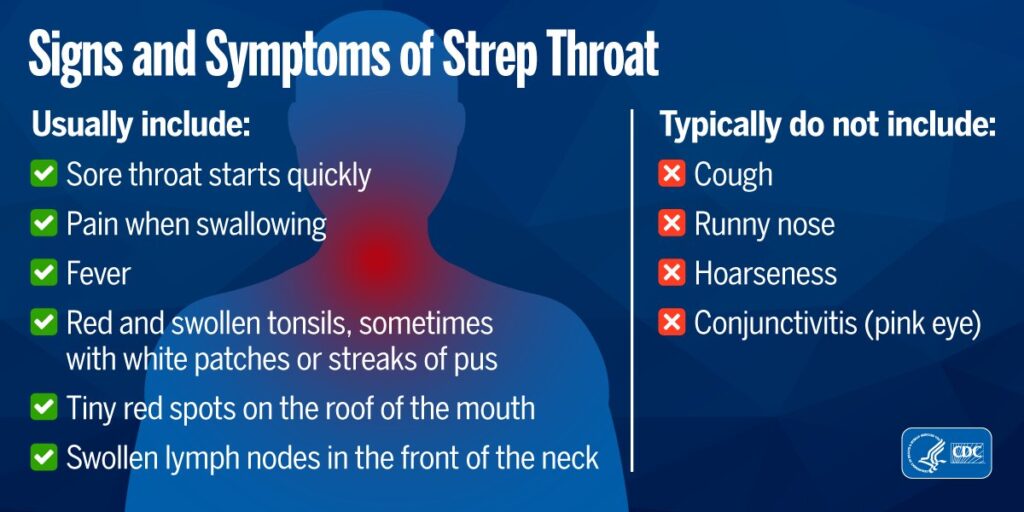
Sore throat, otherwise known as pharyngitis, is a common ailment seen in primary care offices. The most common cause of sore throats is an infection, usually caused by a virus.
Viral sore throat
In babies and toddlers, a common illness caused by the coxsackie virus can lead to fever and ulcers in the throat. In older kids and teens, the Epstein-Barr virus (EBV), can cause the much-maligned mononucleosis, or “mono” for short. Symptoms include prolonged sore throat and/or fever.
Viruses that cause the common cold can also cause a red, irritated throat that can look similar to strep throat. Most viral sore throats go away on their own (yes, including mono). Antibiotics are never used to treat viral sore throats. (Read more about when antibiotics may be appropriate.)

Image credit: Centers for Disease Control and Prevention
Strep throat
The most common bacterial infection of the throat is caused by Group A Streptococcus, also known as “strep throat”. The diagnosis of strep throat usually involves a throat swab.
Strep throat is typically seen in preschool-aged kids and older. The primary symptom of strep throat is a sore throat, with or without a fever. Telltale signs can include red and swollen tonsils, sometimes with white patches or streaks of pus, and petechiae (tiny red dots on the roof of the mouth).

Image credit: Centers for Disease Control and Prevention
Sometimes viral sore throats can mimic strep throat symptoms, so a strep swab is important to differentiate the two. Strep throat is treated with antibiotics to prevent further complications that can arise in some individuals.
Untreated strep throat can lead to kidney complications and rheumatic heart disease. Unfortunately, in developing countries, rheumatic heart disease is still a common problem. Because of our access to modern medicine and timely treatment, the incidence of rheumatic heart disease in our country has significantly dropped in the last few decades.
Other causes
Infections are the most common cause of sore throat, however other causes can include allergies, dry air, pollution, smoking, or secondhand smoke. Chronic or recurring sore throats can also be caused by gastroesophageal reflux or vocal cord dysfunction.
Symptom relief
Regardless of the cause, most sore throats can be managed at home. The goal is symptom relief and hydration. Tylenol or ibuprofen can help with pain and inflammation. Cool liquids can provide a numbing effect to the throat to help alleviate pain. In older kids, we also advise salt water gargles which help kill viruses and bacteria in the throat.
Related Stories



